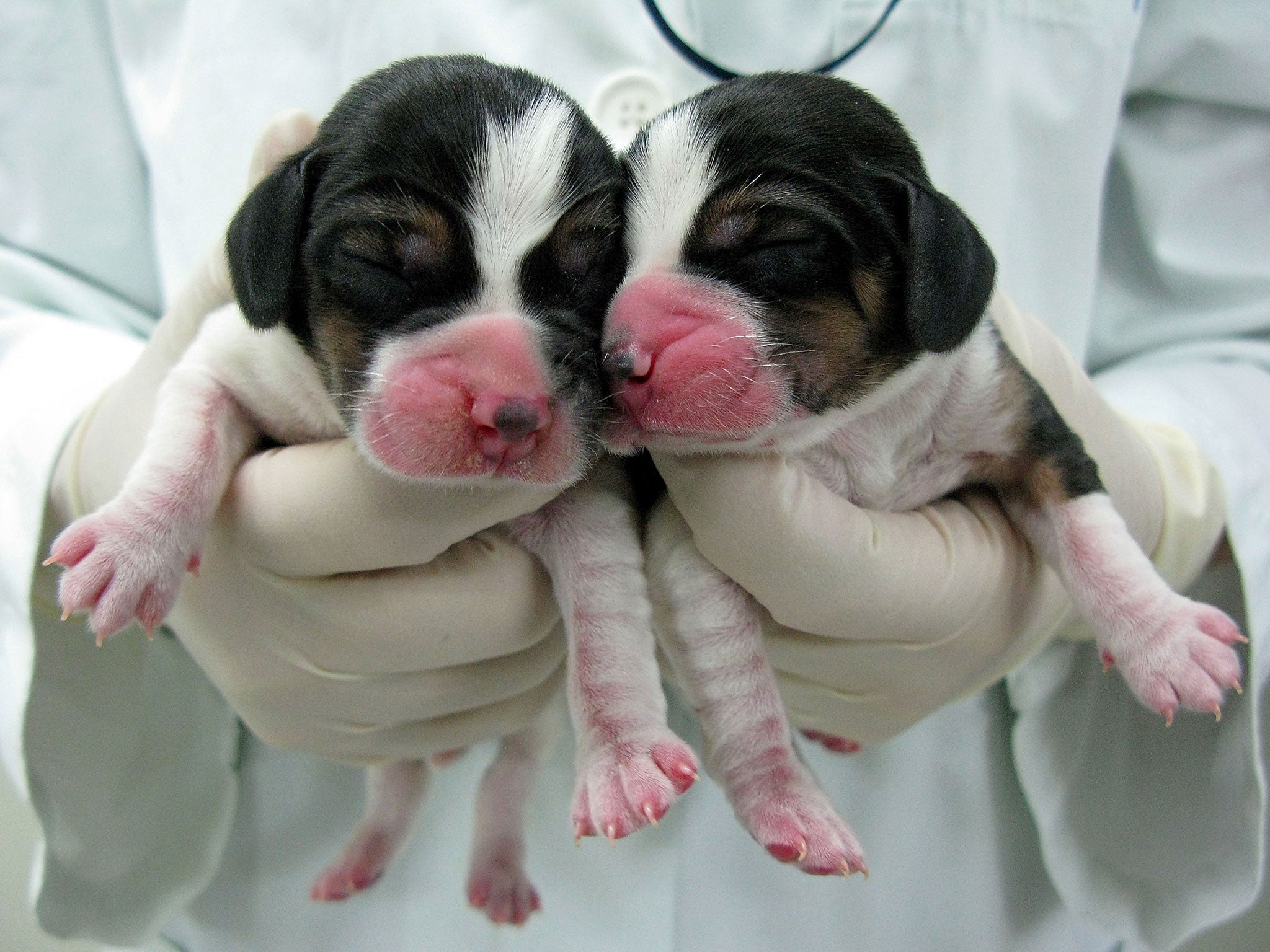China to build world's largest animal 'cloning factory'
The factory, backed by Chinese firm BoyaLife and South Korean Sooam Biotech, will open from the second half of 2016

Your support helps us to tell the story
From reproductive rights to climate change to Big Tech, The Independent is on the ground when the story is developing. Whether it's investigating the financials of Elon Musk's pro-Trump PAC or producing our latest documentary, 'The A Word', which shines a light on the American women fighting for reproductive rights, we know how important it is to parse out the facts from the messaging.
At such a critical moment in US history, we need reporters on the ground. Your donation allows us to keep sending journalists to speak to both sides of the story.
The Independent is trusted by Americans across the entire political spectrum. And unlike many other quality news outlets, we choose not to lock Americans out of our reporting and analysis with paywalls. We believe quality journalism should be available to everyone, paid for by those who can afford it.
Your support makes all the difference.Scientists in China have unveiled plans for the world’s largest animal cloning factory with the man behind the venture labelling it an “extremely important” step towards saving critically endangered species from extinction.
But the factory’s announcement, due to begin operations in the second half of 2016, was greeted with concern by Chinese social media users sceptical of previous food safety records.
BoyaLife, the company partnered with South Korea's Sooam Biotech and creating the 14,000 square-metre facility in Tianjin, said the focus of its work would be cloning gcattle to keep up with Chinese demand for the meat.
“We are going [down] a path that no one has ever travelled,” BoyaLife company chief executive Xu Xiachun told the Guardian.
The factory hopes to produce around 100,000 cow embryos annually – eventually taking five per cent of the Chinese market for beef, according to Mr Xiachun.
While cloned animal meat is not new – in 2010 beef from the offspring of a cloned cow entered the US food industry prompting an investigation and British suppliers require special permits to sell such meat – it is the scale of the operation worrying many.
"Is this meat going to be sold in South Korea or China? If in China, please make our leaders eat it first," one user commented.
"This beef definitely must first be saved just for the central government leaders; only after they and their families have eaten it for 10 years should they deign to give it to us,” Sky News recorded another as writing.
Scientists at the plant also hope to clone champion race horse – in a manner already hugely successful for polo ponies in South America – and sniffer dogs, capable of finding illegal drugs or people during natural disasters.
Join our commenting forum
Join thought-provoking conversations, follow other Independent readers and see their replies
Comments